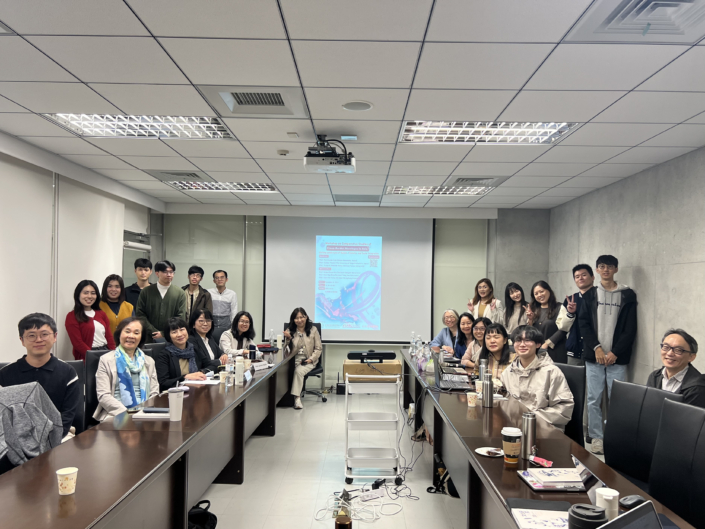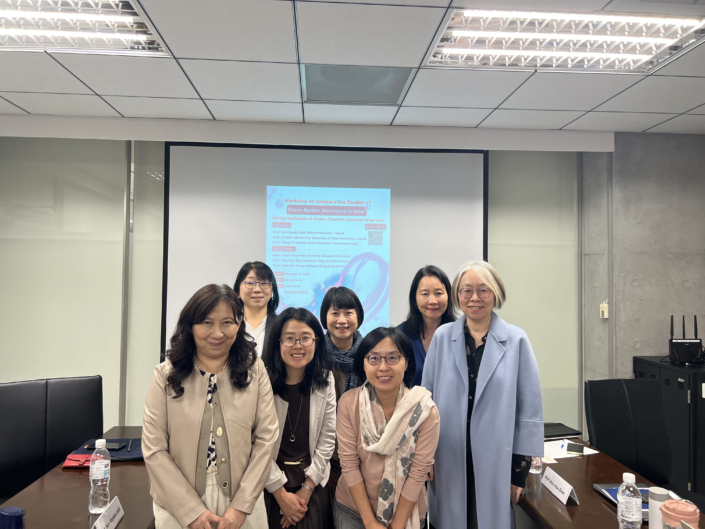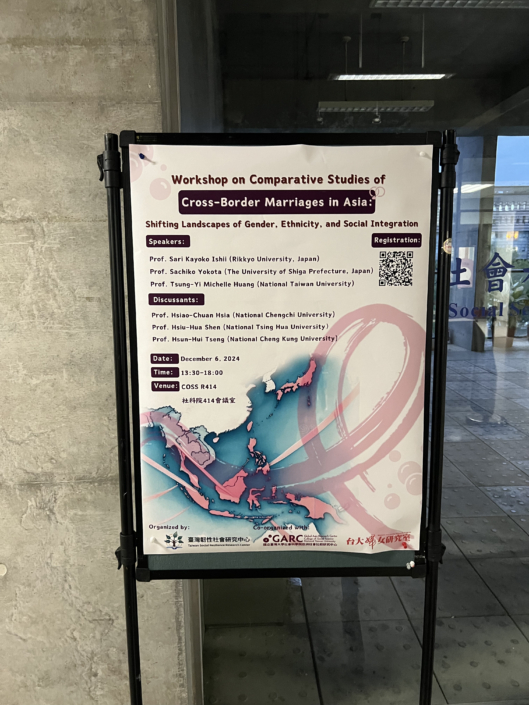Workshop on Comparative Studies of Cross-Border Marriages in Asia: Shifting Landscapes of Gender, Ethnicity, and Social Integration
The Taiwan Social Resilience Research Center, GARC, and NTU Women’s and Gender Research Program co-hosted a workshop on cross-border marriage in Asia, gathering scholars from diverse disciplines and regions.
This workshop opened with Professor Sari Kayoko Ishii from Rikkyo University, who examined marriage settlers in Japan. Her comparative analysis revealed a growing trend of children born to non-Japanese parents, underscoring the need to study co-ethnic marriage migration and non-Japanese households. Professor Sachiko Yokota from The University of Shiga Prefecture explored cross-border commercial marriage in Taiwan and Singkawang, West Kalimantan. She analyzed the motivations of Taiwanese men and Southeast Asian women in the commercial marriage, highlighting shifting family values and the role of marriage brokers. Finally, Professor Tsung-Yi Huang investigated the stigmatization of Hong Kong women marrying Taiwanese men, exploring xenophobia, language discrimination, and “marriage hierarchy.”
During the discussant session, Professor Hsiao-Chuan Hsia emphasized the importance of political and social acceptance in migration and suggested using a geopolitical lens to examine co-ethnic migration studies and relations. Professor Hsiu-Hua Shen advocated for addressing men’s roles in marriage migration and studying remarriages for deeper insights. Professor Hsun-Hui Tseng called for historical analyses of Japan’s migration policies and a closer look at brokers’ roles and demographic shifts. The workshop concluded with the presenters offering suggestions for future research directions and policy recommendations, followed by engaging discussions with the audience.





